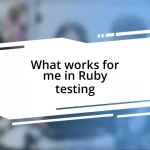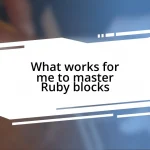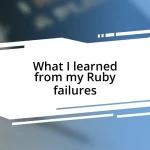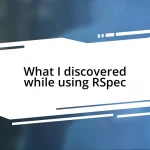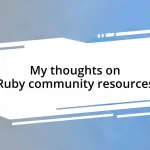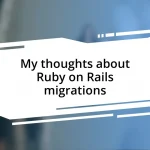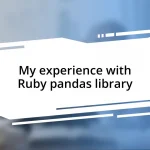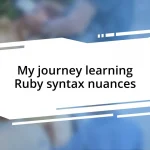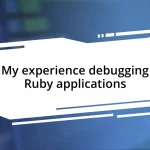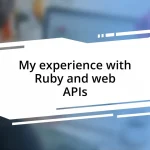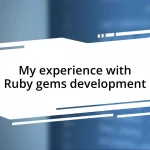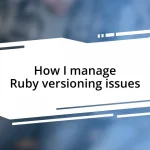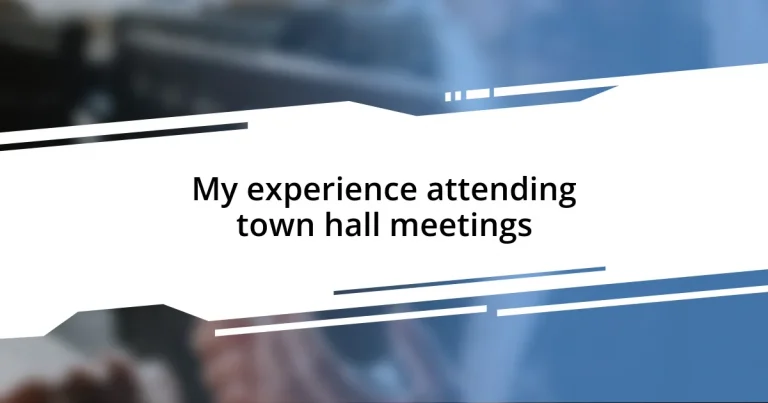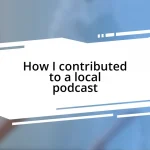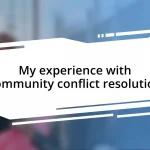Key takeaways:
- Town hall meetings foster community engagement, allowing individuals to share personal experiences and voice concerns directly to local officials.
- Preparation, such as researching the agenda and articulating questions, enhances participation and boosts confidence when speaking.
- Effective engagement involves active listening, maintaining eye contact, and creating a welcoming atmosphere for open dialogue.
- Following up after meetings, such as sending thank-you notes and sharing insights with others, strengthens community connections and encourages continued involvement.
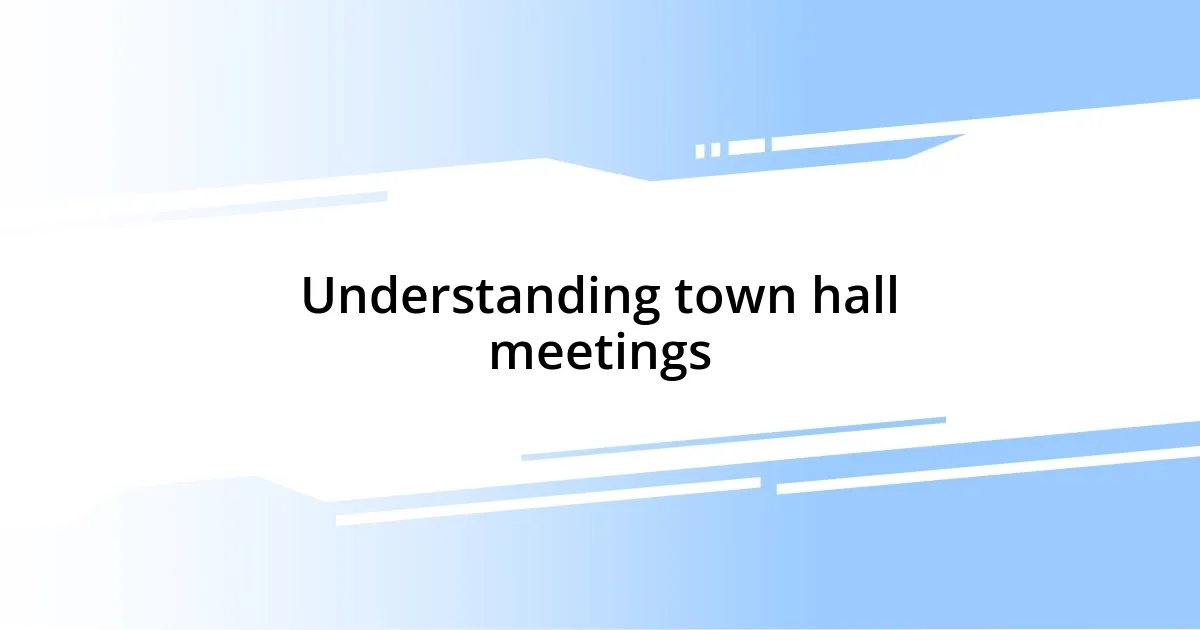
Understanding town hall meetings
Town hall meetings serve as a vital bridge between community members and local government officials. I still remember my first experience sitting in a crowded room, the buzz of anticipation hanging in the air, waiting for the officials to address the issues that mattered most to us. It was a reminder that we all have a voice, and these gatherings are an invaluable opportunity to express our concerns and ideas directly.
I often wonder why more people don’t take advantage of these meetings. For me, attending one was transformative—I was immersed in a space where neighbors shared their personal stories about the challenges they faced. Hearing someone passionately discuss their struggle with public transportation made me realize the power of collective experience and empathy; it reaffirmed my belief that a community truly thrives on the sharing of its voices.
What struck me most was how accessible these meetings felt, fostering an environment where even the shyest among us could make a comment. I recall a woman who seemed hesitant but stood up to speak about the need for parks in our area. Her voice quivered, but she was met with overwhelming support, which was a beautiful reminder that vulnerability can inspire others to engage. Isn’t it amazing how one person’s courage can motivate a whole room? Town hall meetings not only inform us but also create a sense of unity and activism within our communities.
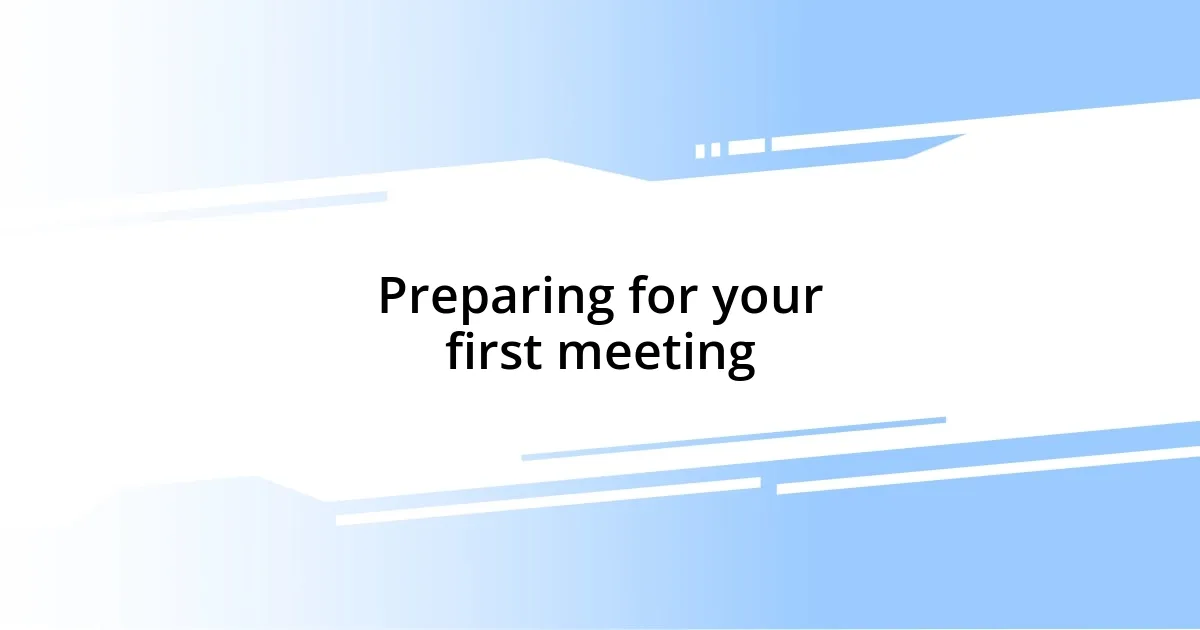
Preparing for your first meeting
Preparing for your first town hall meeting can feel a bit daunting, but with the right mindset and tools, you can navigate it smoothly. I remember my initial nervousness, feeling like a fish out of water, unsure of how to engage in discussions. To ease those jitters, I found it helpful to do a little homework on the agenda and the key topics up for discussion. Once I realized that I could contribute thoughts that mattered, I felt empowered.
Here are some key preparations to consider before attending:
- Research the Agenda: Familiarize yourself with the topics that will be discussed. Knowing what’s on the table makes it easier to engage.
- Write Down Your Questions: Jotting down your thoughts can help you articulate your concerns clearly during the meeting.
- Arrive Early: Getting there a bit ahead of time allows you to find a good seat and soak in the atmosphere.
- Bring a Friend: Attending with someone can ease the nerves and provide support during the discussions.
- Stay Open-Minded: Be prepared to hear varying opinions, as they can lead to richer discussions and insights.
Every little step you take in preparation can make a significant difference in your experience at the meeting. I found that even simple actions like taking a few deep breaths before speaking can help ground you, transforming anxiety into enthusiasm for being part of the dialogue.
The energy in the room can be infectious, especially when you realize how many others are there wanting to connect and make a difference. It’s all about joining in with the prevailing spirit of community engagement.
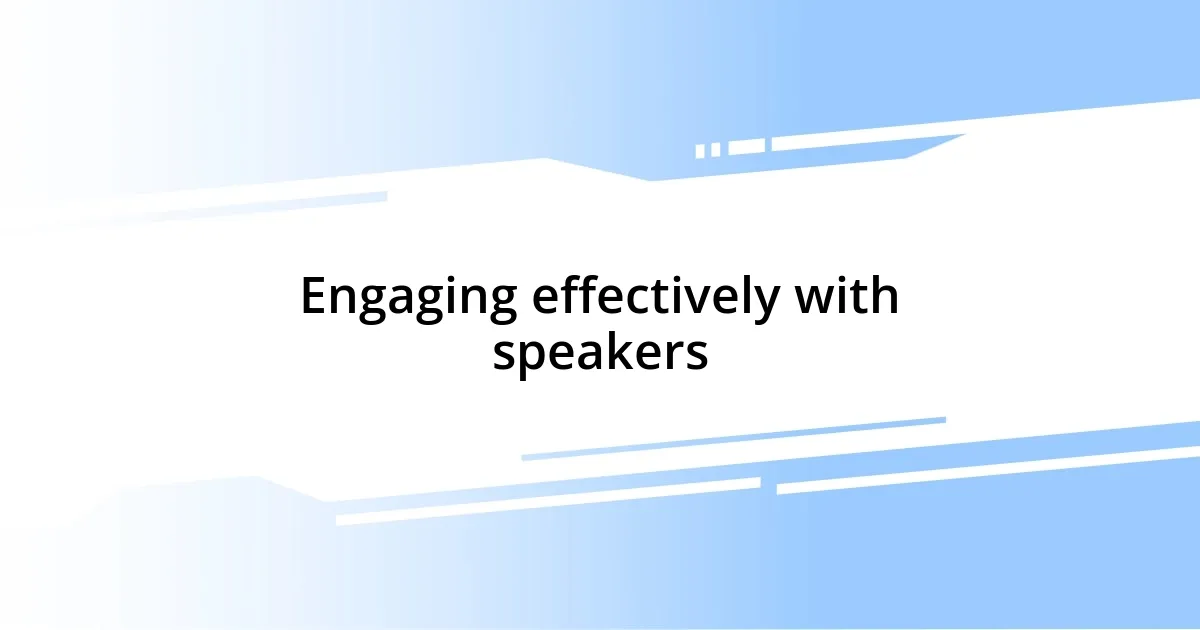
Engaging effectively with speakers
Engaging with speakers effectively requires a blend of confidence and active listening. I remember my first time attempting to ask a question. I was sitting near the front, heart racing, waiting for the right moment. When I finally raised my hand, the speaker acknowledged me with a smile. That connection boosted my confidence, reminding me that speakers are often eager for audience participation. The joy in their eyes when we contribute enhances the dialogue and encourages a more interactive environment.
Listening attentively is as vital as speaking up. One time, a fellow attendee shared a story that resonated deeply with me; it was about the struggles of her small business in a tough economy. Instead of only planning my response, I made a conscious effort to absorb her words fully. This not only informed my subsequent question but also demonstrated respect for her experience and made the conversation richer. Have you ever noticed how validating it feels when someone truly listens? That’s the magic of meaningful engagement.
In my experience, maintaining eye contact while the speaker talks is crucial, as it shows that you’re invested in the conversation. I often think about how, during one town hall, I focused on a council member’s facial expressions and body language. This created an unspoken bond, making my nervousness fade away. Rather than feeling like just another member of the audience, I felt like a participant in a community dialogue. That sense of involvement elicits a deeper connection, making every voice, including yours, matter.
| Engagement Technique | Description |
|---|---|
| Active Listening | Focus completely on the speaker, absorbing their words and emotions to foster a meaningful conversation. |
| Body Language | Maintain open body language and eye contact to demonstrate your interest and involvement in the discussion. |
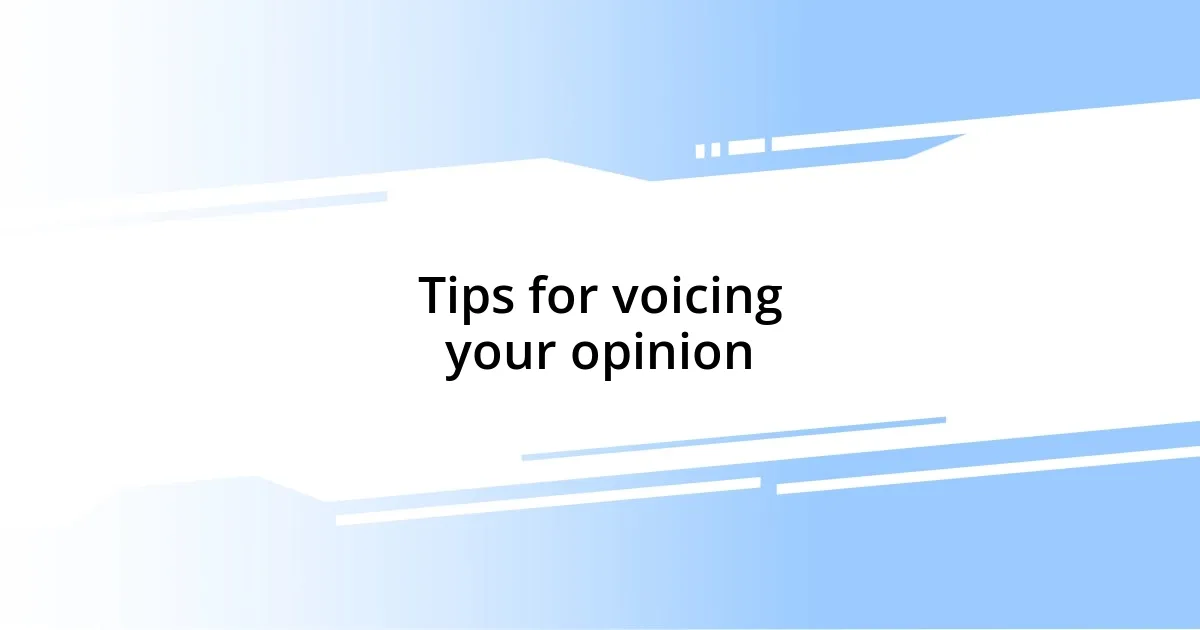
Tips for voicing your opinion
Voicing your opinion at a town hall meeting can be empowering, but it’s important to approach it thoughtfully. One strategy that worked for me was finding a moment of pause before speaking. There’s something reassuring about taking that brief second to gather your thoughts. I remember the time I hesitated just before sharing my perspective on a local park renovation. That pause allowed me to express my ideas clearly, making the impact of my words feel stronger.
Another tip is to frame your opinions in a way that invites dialogue. Instead of simply stating what I think, I often find it effective to ask questions like, “How do we envision this impacting our community’s future?” This invites others to participate rather than putting them on the defensive. It’s a subtle shift, but it creates an opportunity for a shared conversation. Have you ever tried rephrasing your statements as inquiries? It can transform the dynamic of the discussion, making everyone feel included.
Lastly, never underestimate the power of personal stories. When I shared my experience of volunteering at a local shelter while discussing community needs, I could see nods of recognition from the audience. It made the conversation feel more relatable and grounded in real experiences. Think about your own stories and how they connect to the topics at hand. When you speak from your heart, it grabs attention and cultivates a deeper connection with those around you.
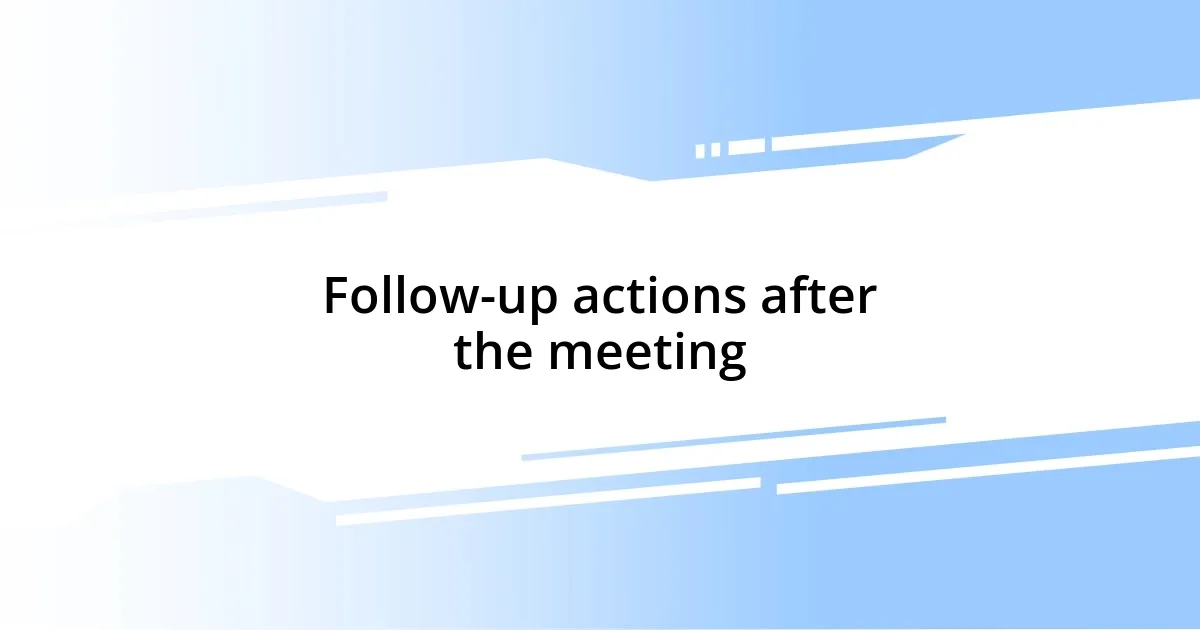
Follow-up actions after the meeting
After attending a town hall meeting, one of the first follow-up actions I recommend is sending a thank-you note to the speakers and organizers. I remember crafting a quick email after one meeting where I felt especially inspired by the discussion on community revitalization. Expressing gratitude not only reinforces the positive atmosphere but also opens the door for further dialogue. Have you ever felt that a simple thank-you can leave a lasting impression? It truly can.
It’s also essential to share the insights you gained from the meeting with your friends, family, or community groups. After I attended a session on public transportation improvements, I took the time to discuss what I learned with my local book club. This created a ripple effect—everyone became more aware and engaged in the issues. I found that people appreciated the information, and it sparked rich conversations. How often do we miss opportunities to connect through shared knowledge?
Finally, consider taking specific actions based on the meeting’s outcomes, like joining a committee or volunteering for a local project. I once joined a neighborhood cleanup initiative after a town hall focused on environmental concerns. The experience was rewarding and extended my network within the community. It’s incredible how one meeting can inspire you to take real steps towards positive change. What actions are you inspired to take after such gatherings? Reflecting on that could lead you to meaningful contributions.
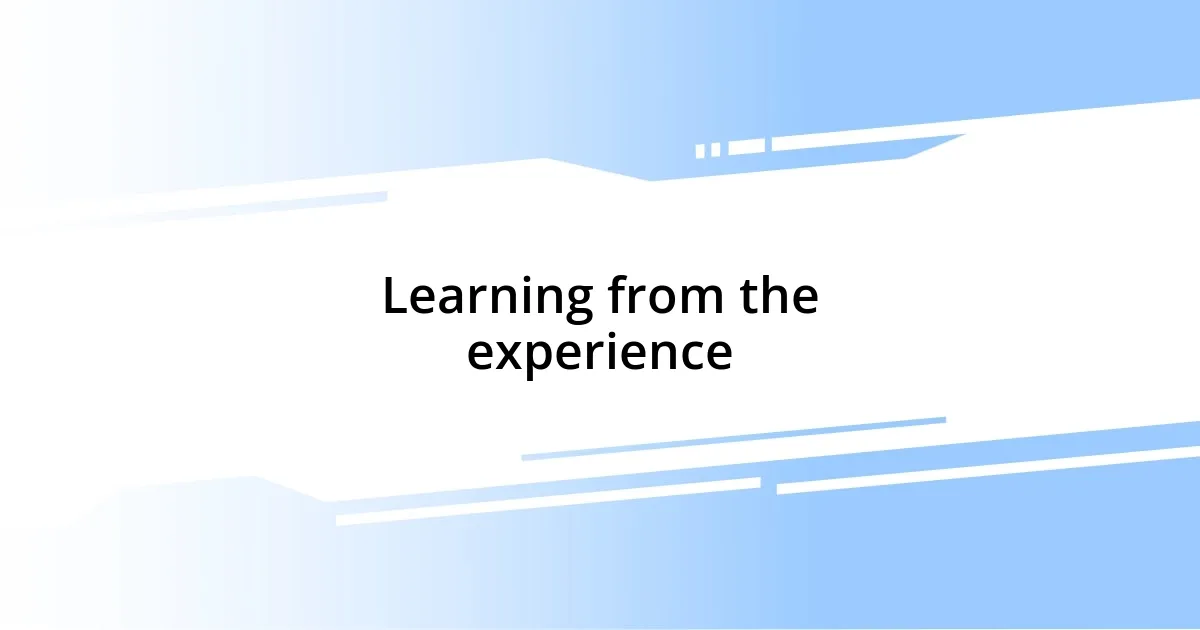
Learning from the experience
Attending town hall meetings has taught me the value of preparation. I recall one particular meeting where I felt a rush of nerves before sharing my thoughts on local housing policies. Instead of diving in unprepared, I made a simple checklist of key points I wanted to address. This not only calmed my anxiety but also helped me articulate my points clearly, leading to more productive discussions. Have you ever felt that preparation transformed your ability to engage? It’s a game-changer.
Moreover, I’ve learned that feedback is crucial. After speaking, I often seek out reactions from my peers. I remember discussing a local initiative and asking a friend what he thought afterward. His insights not only gave me a different perspective but also helped me refine my arguments for future meetings. This exchange of ideas is invaluable. How do you usually evaluate your own contributions after such discussions? It can make all the difference in how you approach the next meeting.
Lastly, there’s immense growth that comes from simply sharing the space with diverse voices. One meeting left me captivated as a young student spoke passionately about climate change. Hearing fresh viewpoints shifted my understanding of issues I thought I knew well. It’s fascinating how each person brings their unique experience to the table. Have you noticed how varying perspectives can reshape a discussion? It’s these moments that remind me of the importance of community and open dialogue.
